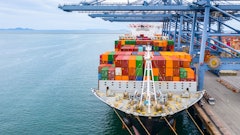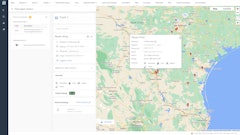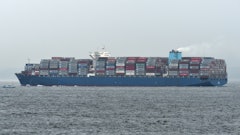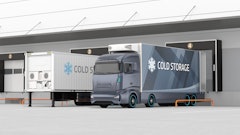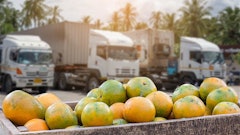Death, destruction and the displacement of hundreds of thousands of people have garnered most of the media coverage of Hurricane Katrina, as well they should. But the Gulf Coast plays a vital role in the supply chain and its devastation is going to have continuing ramifications for the food industry for quite some time.
In this month’s Special Report, “Katrina Brings Hell And High Water” [page 8], Leonard Klie, Food Logistics’ managing editor, details the logistical impact the storm has had on food companies in the Gulf Coast. And the immediate fuel price hike is just the tip of the iceberg—if you could find ice, which was non-existent after the hurricane thanks to the loss of electricity. It’s a huge bottleneck down there right now and the effects are rippling throughout the supply chain.
Service in ports and rail lines in the region have been disrupted and parts of major highways have been destroyed. What used to go by rail or barge has to be trucked—and not always by the shortest route. Processing plants, distribution centers and public refrigerated warehouses have been flooded or ruined, resulting in millions of dollars in damages. And those that are functioning don’t necessarily have employees to staff them since many evacuated. Meanwhile, food companies in neighboring regions are now dealing with supplying product for thousands of evacuees.
Five of the hardest hit ports on the Gulf Coast handle almost one-sixth of America’s trade cargo—that’s more than 450 million tons of cargo a year. A variety of food commodities go in and out of those ports, which were initially shut down. The Port of New Orleans, for example, handles a quarter of the coffee beans imported into the United States, so companies such as Procter & Gamble are anticipating temporary supply restrictions. Meanwhile, Gulfport manages much of the country’s fruit and produce imports, so Dole Food Co. and Chiquita Brands International are diverting shipments to other ports.
Farmers have another set of problems. Grain farmers in the Midwest use Mississippi barges to reach world markets and rely heavily on the Gulf ports; New Orleans ships one-fifth of the country’s wheat exports, half the rice and soybean exports and three-quarters of corn exports.
The good news is that the ports are moving towards recovery and partial service is available at some of them. Most are expected to resume regular operations by the end of this month. The highway and the rail repair, however, will likely take months, if not longer. But the food industry has rallied around those in need, donating food, shelter and money to the victims of this deadly hurricane.
Rich Ward, a former Wakefern truck driver and the founder of Operation Silver Eagle, is seeking volunteer drivers to move a convoy of food and paper supplies to the region next month. Operation Silver Eagle has provided assistance to more than 40 disaster sites during the last 12 years. If you’re a professional willing to drive or if wish to donate product to the convoy, please contact Rich by e-mail at [email protected], or by phone at (973) 835-4744.
Our best wishes and prayers are with all of those affected by Katrina.





